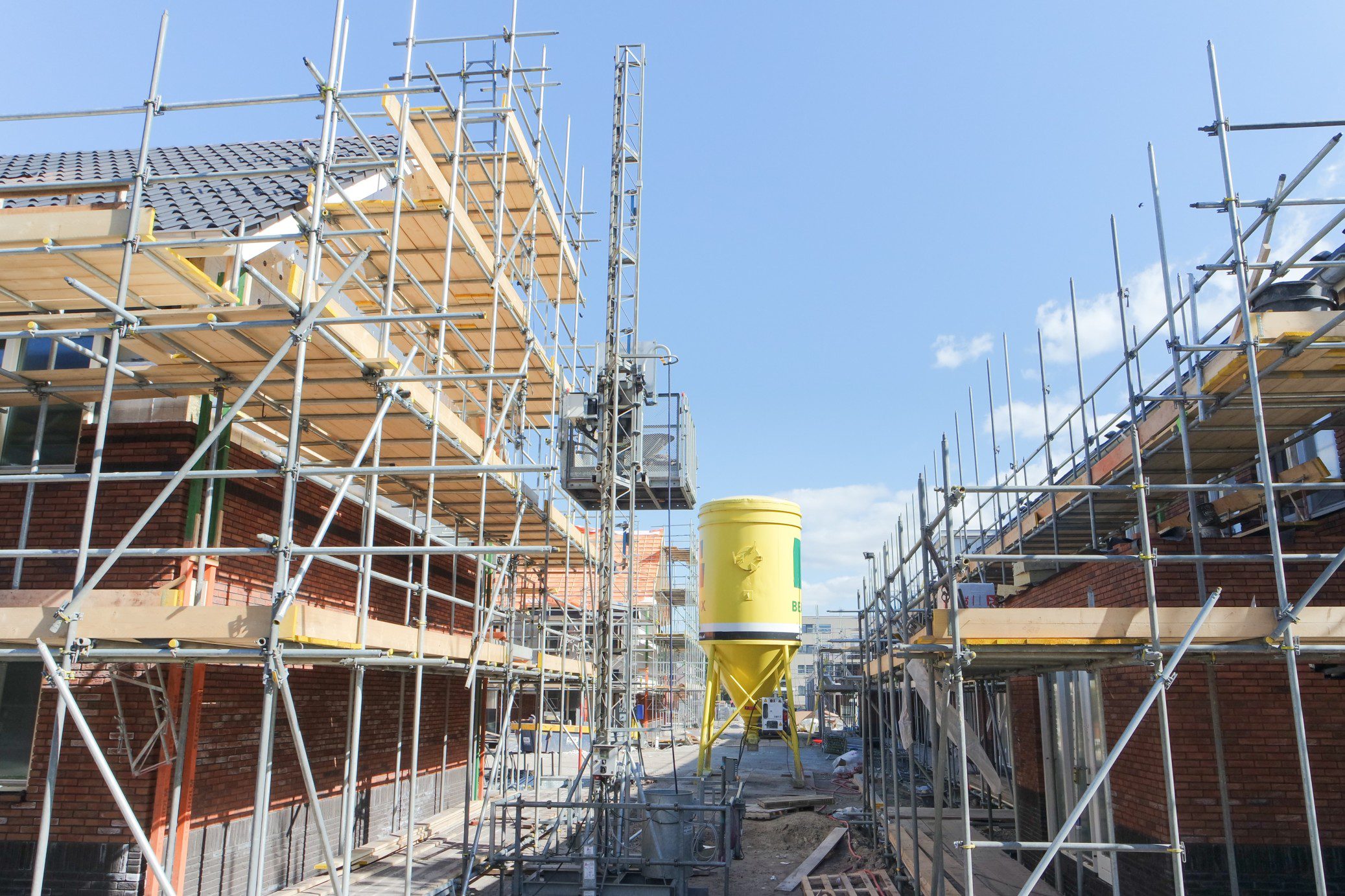
A roof is an essential part of a house. As much as the house frame offers structural integrity, the roof maintains it by protecting it from the elements and damage.
When a roof is incapable of protecting the house, it has to be replaced, often at a cost.
Continue reading our guide to precisely discover the cost to replace a roof.
Various signs tell you when your roof needs to be replaced. Some of them are abrupt, while some occur over a long period of time.
Different types of roofs have different longevity. The amount of time a roof can last depends on
Most roofs have a recommended period before replacement by the manufacturer. It is advisable to replace the roof at about 80% of the recommended time.
For a 20-year-old roof, you should consider replacing it after about 15–16 years. It would be best if you didn’t wait until the roof started to leak before returning it because it may have damaged the house.
It depends on the type of roof, however. Some roofs can last up to 40 to 50 years, so it is always advisable to get your roof repaired over getting it replaced if it still has 30% (or more) of useful life left in it. This is what I always tell my customers.
Chris Stevenson | Roofer in Englewood Colorado.
Note: If you are trying to sell your house on the traditional market, then a lot of times, if your roof is at the end of its life then you will want to replace it; otherwise, this could be a reason the buyer doesn't go through with the deal. Many times the "we buy houses" companies will buy it as is.
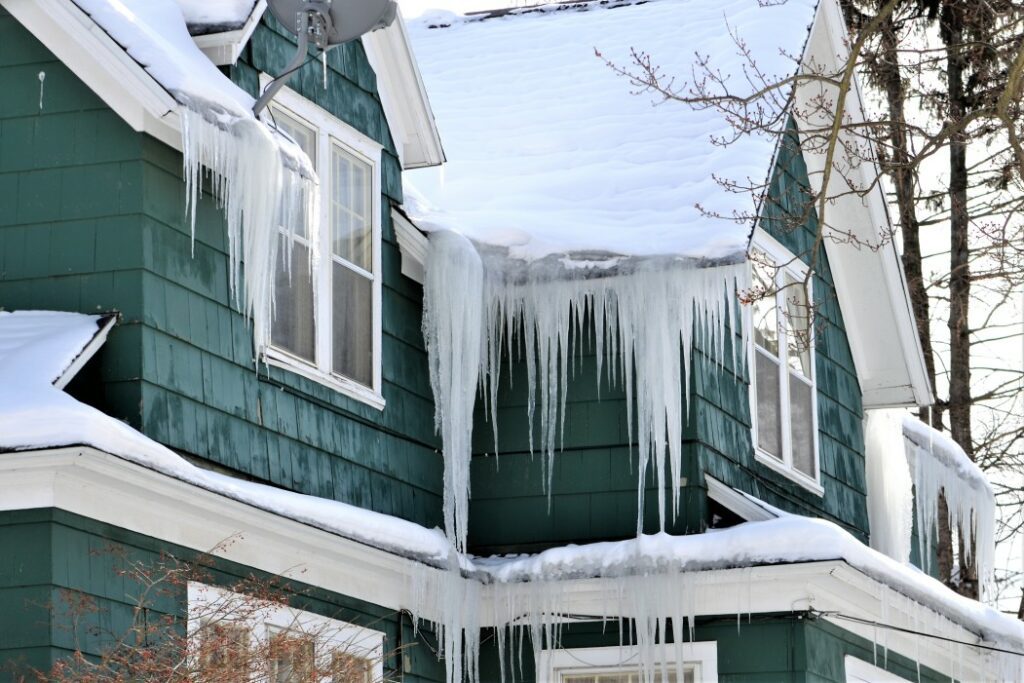
Weather conditions in a place may cause roof damage.
Hail and wind during storms cause stress on the roof by weakening its integrity. Strong winds may lift the roof, cladding at the edges, straining the roof.
Ice and water damming cause a point load on specific roof parts, causing the frame to collapse.
Extreme weather conditions like tornadoes and hurricanes rip the roof or parts of it apart.
Trees growing next to a roof may damage it in a few ways:
The branches may scrape or scratch parts of the roof. On a very windy day, they may even lift off parts of the roof when they dig under the roof cladding.
Leaves accumulating on the roof decompose to sustain an ecosystem, including organisms that cause roof damage. One of these is moss, which is often ignored as an appealing aesthetic, leading to unseen damage over time.
Trees may also fall onto the roof, causing damage to the roof cladding and the roof frame. Such damage is more expensive to fix and may require insurance coverage.
If you are not sure whether you should replace your roof, you can hire a roof inspector for about $200 for a detailed roof inspection.
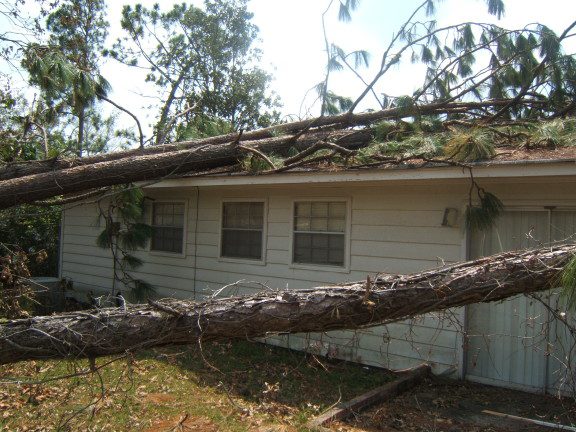
The amount it will cost to replace a roof depends on a few things. They may be directly or indirectly dependent on the roof itself.
The price may go up if the damage is past the roof covering.
If damage occurs to the roof frame, it may cost more to repair. Replacing the roof covering on a damaged frame may collapse when the frame supports the roof covering or extra load such as snow.
The roof frame may be damaged by water, which causes the wood to rot, or physical damage, like a tree fall, which breaks part of the roof’s structural integrity.
The house’s location determines the price at which you’ll buy the materials and pay for labor, with demand, the local market, and labor input in place. For example the roofing in Los Angeles are quite a bit higher than in Milwaukee.
For example, for someone who lives in the city, the cost to replace a roof may be more expensive compared to a house in the countryside.
A roof built with materials that are no longer on the market may require a complete change to the available ones. A homeowner may not have the option of replacing it with the previous roof covering within their budget.
Inflation of material prices due to high demand and low availability may also increase roof replacement prices.
This article uses a cost per square foot to estimate the cost to replace a roof. The known variable here is the cost, and to get a final price, it is crucial to know the size of your roof.
There are various ways one can measure the size of their roof, but we will use two simpler ones:
This method is suitable for roofs with less intricate designs, like flat or skillion roofs. Gable roofs with easy slopes may also fall into this category.
It involves measuring the length and width of the roof in feet, then multiplying the values to get the area in square feet.
For a pitched roof, you may calculate the area of both slopes separately and add them together to find the total area.
Alternatively, you can use the Pythagorean Theorem to divide the roof into two triangles, with the rise between the ridge and the base as the height. The base is the distance between the opposite roof hips.
The base and height will give the hypotenuse, which is the width of the roof.
This method can work for you if you have an intricate roof design that may make manual calculation hard, for example, steep-sloped roofs or roofs that use different roof designs on one roof, like dutch gable roofs.
Determine the house in square feet multiplied by a factor of 1.3 for a simple roof, 1.5 for a more complicated roof, and 1.6 for a complex roof with steeper slopes should give you an idea of the relative size of its roof.
For a hip roof with faces on each side, you can multiply by 1.4 to provide you with the relative size in square feet.
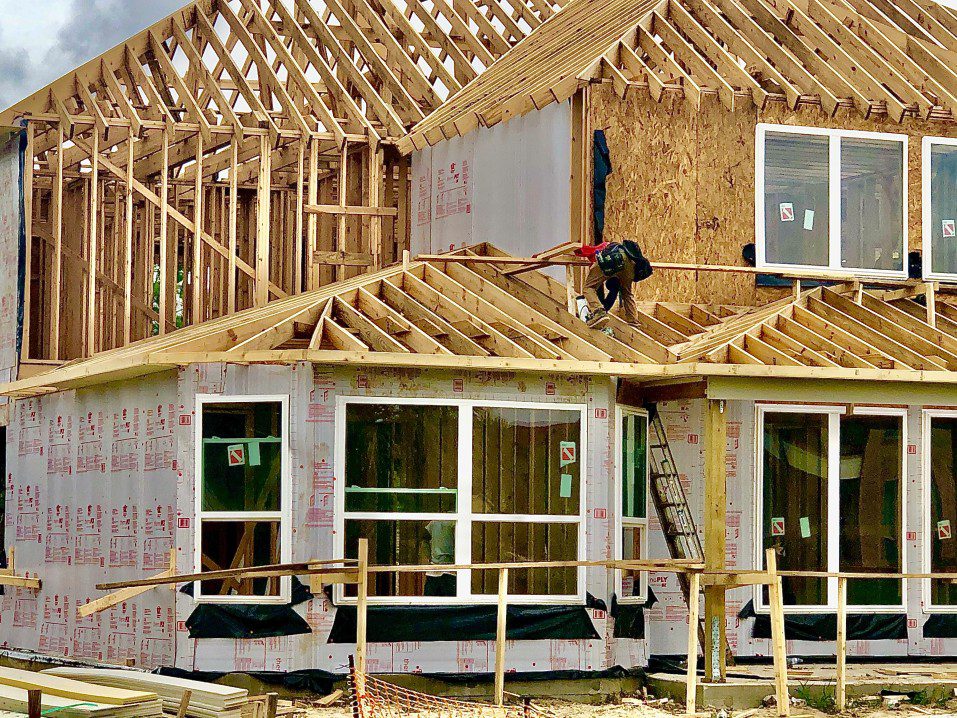
The cost to replace a roof depends on the roof condition, materials, and labor input. Other prices, such as necessary building permits and roof accessories like skylights, add up this cost.
There are various options one could choose that affect the final price. The availability of these materials on the market also affects these estimated costs.
Metal roof
Out of all available options, metal roofs are the most expensive. They may cost about $4–$30 per square foot on average, but the price may be lower or higher depending on the material and labor.
| Material Type | Prices |
| Aluminum Shingles | $3.15-$6 |
| Steel Shingles | $3.35-$4.25 |
| Galvalume Corrugated Roofs | $1.50-$2.50 |
| Steel panels roofs: Depending on the type, i.e., galvalume, galvanized, or stainless steel | $0.75-$16 |
| Tin Panels | $3.50-$14 |
| Zinc | $6-$10 |
| Copper tiles | $14-$15 |
| Standing seams panels: Depending on the material, i.e., aluminum, zin, steel, or copper | $4.50-$6.50 |
Shingles
There are various shingles, including wood, metal, and asphalt shingles. Asphalt shingles are the most common type of shingle and the most common roofing option.
Generally, shingles are light in weight, cheap to buy, easy to install, and offer excellent protection. There are two types of asphalt shingles:
| Material Type | Description | Cost |
| 3-tab shingles | They are made of adhesive and asphalt to form light and flat materials that make up the shingles. They have a single shape and size and a wind rating of around 60 mph or less. Some building regulations require the installation of shingles that have a wind rating of more than 90 mph, making this type of shingle less common. They have a life expectancy of about 7–12 years as they are susceptible to damage by the elements. | $1.50-$3.00 per square foot |
| Architectural Shingles | They have the same composition as 3-tab shingles, but they vary in quality and amount. These shingles have finer asphalt and multiple layers that give them a dimensional look. They are more wind resistant, with a between 80 and 120 mph rating. They may last up to 50 years if maintenance and external factors are advantageously constant. | $3.50-$5 per square foot, increasing to $7-$15 per square foot for longer-lasting shingles |
Three-tab shingles are the cheapest option when it comes to shingle types. I always recommend architectural shingles over three-tab shingle, because the extra material cost may only be an additional $300-$1,000 increase. Architectural shingle look better and are more hail and wind resistantant.
Tim Hoffman | CEO | H and F Family Contracting.
Tiles
Depending on the tile type and average local market prices, tile roofs may cost about $4–$25 to install.
There are various tiles, each with a different price per square foot.
| Material Type | Prices |
| Clay | $3-$7 |
| Concrete | $3-$5 |
| Terracotta | $5-$10 |
| Spanish | $15-$16 |
| Solar | $21-$25 |
| Slate | $9-$16 |
Labor costs account for 60% of the cost of replacing the roof. There are particular skills required to have a long-lasting and robust roof.
Professional aid is always advised, primarily due to the safety concerns of installing a roof and the technical skills they are equipped with. This saves time and money on fixing amateur mistakes that manifest over some time.
Metal roof
Metal roofs require more skill to work with compared to other roofing options. Therefore, the cost to replace a roof depends on the type or size of the roof.
| Material Type | Prices- per sq ft. |
| Aluminum Shingles | $5.85-$10 |
| Steel Shingles | $6.65-$10.45 |
| Galvalume Corrugated Roofs | $4.2-$9 |
| Steel panel roofs: Depending on the type, i.e., galvanized or stainless steel | $5.50-$15.50 |
| Tin panels | $10-$18.50 |
| Zinc panels | $17-$28 |
| Copper tiles | $7-$14 |
| Standing seam panels: Depending on the material, i.e., aluminum, zinc, or steel | $6.50-$12 |
Tile roof
You may have to speak to the contractor to know whether the quote includes labor or whether labor costs are independent.
The following are estimated prices for installing various tiles per square foot.
| Material Type | Price- per sq. ft. |
| Clay | $8-$18 |
| Concrete | $7-$14 |
| Terracotta | $5-$15 |
There are different roofing designs one could go for. Replacing the roof of these roofs may have varying costs due to the nature of the roof. It may also add labor costs if special safety equipment is needed.
| Roof Style | Price- per sq. ft. |
| Flat roof | $4.50-$7 |
| Low slope | $4.50-$7 |
| Standard slope | $3.50-$9 |
| Steep slope | $5-$12 |
Each type of roof is unique, and some roofs may cost more than others, especially due to accessories like skylights and permits, which may add to the final price.
The original has to be removed to prepare it for the new roof to replace a roof. It may cost about $1-$2 per square foot.
You may have to add about $1,000 for reinforcement when installing materials like tiles or slate, which may exert a heavier load on the existing frame.
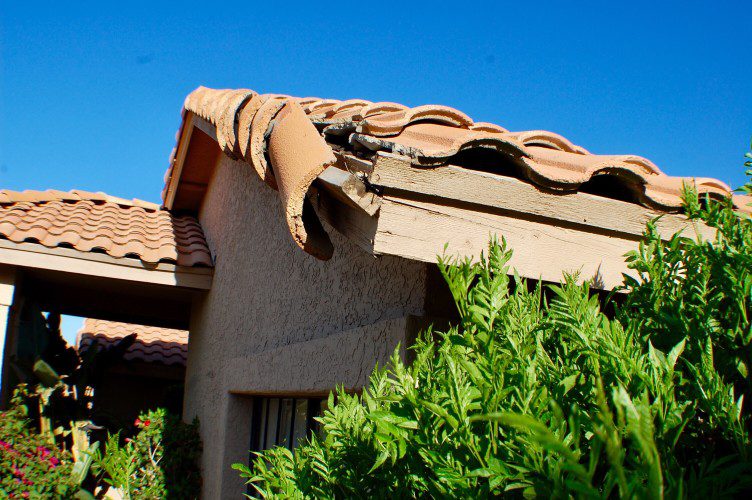
Roof replacement after storm damage may cost about $4–$8 per square foot, but this depends on the extent of damage and the size of the roof.
Different types of underlayments may be installed on a roof. These include ice and water dam protection, felt, and EPDM rubber.
Roofing nails are of various types and sizes, each with different prices.
Umbrella nails are suitable for corrugated metal roofs, while shingle nails are used when installing shingles.
Insulation like iso-board may be installed to regulate the amount of heat loss to the atmosphere by the house.
The reason why roof replacement is done in the first place is to fix the damage on the roof. When building a new roof or replacing one, you should opt for more durable materials that won’t require constant maintenance or repairs.
It may be more cost-effective to install architectural shingles. An example is 3-tab shingles. They are cheaper than architectural shingles, but they have low wind resistance and a short lifespan.
Squares are used to mean 100 square feet for every square. So, for a quote of $200 per square, this is the same as $2.00 per square foot when converted.
Different contractors may give estimates using either of these, and it is essential to know when each is used.